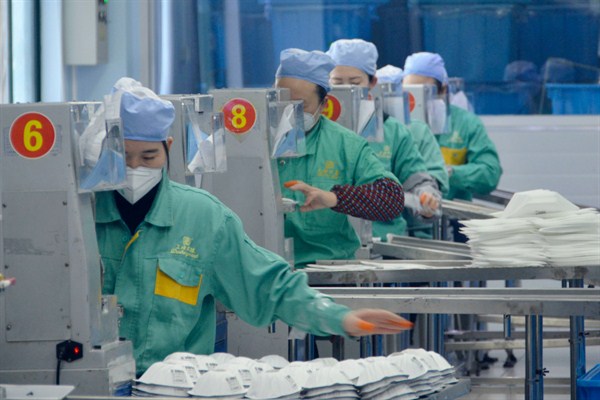There is no drug or vaccine against COVID-19, and it will be at least 12 to 18 months before those remedies could be available. Face masks are next to impossible to find for most consumers, even as public health officials caution that they are not terribly effective against this coronavirus. There is a shortage of ventilators, and President Donald Trump has told America’s governors that they should not rely on the federal government to provide them—even though they are the most effective tool for treating hospitalized COVID-19 patients.
In addition to the political, economic and social impacts of the coronavirus pandemic, this outbreak highlights the particular challenges related to maintaining medical supply chains. Across the globe, we are seeing health systems struggle to cope with overwhelming demand for medical equipment and limited or uncertain supplies. This forces serious and often uncomfortable global debates about who should have access to them.
The U.S. government has responded to these issues by proposing changes to procurement practices. Last week, White House trade adviser Peter Navarro said that he was preparing an executive order for Trump that would relocate medical supply chains to the United States from other countries. Two senators, Tennessee Republican Marsha Blackburn and New Jersey Democrat Bob Menendez, have proposed legislation that would provide $100 million to pharmaceutical manufacturers to encourage them to bring their production to America. They described the U.S. as too reliant on foreign countries for drugs that Americans need.

